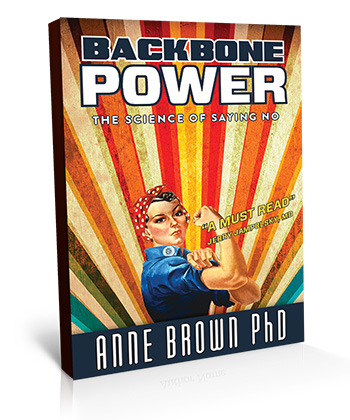Review by Monique Y. Wells
Paris Muse of Time Management www.gettingoveroverwhelm.com
Those of you who know my story know that my biggst challenge with overwhelm in my businesses was one of overcommitment. I suffered from what I call “The Wonder Woman Syndrome”- I wanted to be everything and do everything for everyone, and expected to get it all right the first time! I had the problem of not being able to say “no”-mostly to myself! I had such passion for my businesses that too many things excited me, giving me that “Wouldn’t it be great if….” feeling. I knew that I already had a zillion things to do, but felt that if I had one or two additional minutes here and there, I could certainly squeeze something else in. As a classic overachiever, I have had to learn how to guard against this behavior or go back to the near “crash-and-burn” state of mind and body that I experienced so many months ago.
While I have not taken a survey on the subject, I believe that most women suffer from another kind of overcommitment- the one that stems from being uncomfortable saying no to others. At some point in their lives, they learned that uttering this word would have negative consequences and subsequently became masters at avoiding doing so. In my training and mentoring programs, I teach the importance of unearthing the causes of our undesirable behaviors so that we can effectively face them and free ourselves of them. For those who have trouble saying No to others, Backbone Power The Science of Saying No, does exactly that. Dr. Anne Brown’s direct “no holds barred” approach will undoubtedly touch a raw nerve for many who read her book.
This is a good thing! If you have the courage to look at yourself honestly and reflect on why you “fold like a pack of cards” every time a situation that presents the slightest hint of conflict or requires self-assertion comes your way, I believe this book will help you.
Dr. Brown discusses the people-pleasing behaviors that can lead women into overcommitment. She lists serveral symptoms, saying that if you do any of the following when you say no:
- Accompany it with an excuse
- Feel like you are rejecting someone
- Feel like you are a control freak
- Feel like you are being difficult’
- Feel like you are going to cause conflict
- Then it is likely that you are engaging in some form of “people-pleasing.
Do any of these describe you?
Dr. Brown reminds us that we are not born with this tendency, saying that “Babies, for example, have no problem sealing their lips, turning their heads, and pushing spoonfuls of food away.” She then plunges into the deep and sometimes dark reasons why this can occur.
Note that this book does not approach the inability to say no from a time management or other business standpoint. It does take a hard look at dysfunctional relationships, physical and pschological abuse, and abandonment, as well as the anxiety, depression, and denial that they can engender. It also provides a multitude of exercises in each chapter that are designed to help you face and overcome these feelings so that you can make better decisions and act from a postion of self-confidence, strength, and dignity in any situation.
Backbone Power The Science of Saying No is an easy read in the sense that you can easily finish it in a few hours of continuous reading. It provides many concrete examples of cases that illustrate the numerous points that Dr. Brown drives home without a lot of psychological jargon. Most importantly, it will be a source of inspiration and mortivation for you if you have difficutly mouthing the word “no” for fear of displeasing someone-whether it be in business or in your personal life.
Review in Addiction Magazine
March-April 2011
by Norman Beecher, a learning and development facilitator at the Rehabitation for Addicted Prisoners Trust, and in private practice.
This book is about building posititive, effective relationships and is written for all who wish to develop a better quality of life by becoming authentic and “speaking their truth”.
Brown skillfully takes us through the myriad of situations in which we say “yes” when we mean”no” and pays significant attention to the origins of this “people-pleasing” behavior, such as being raised in an environment where parenting is compromised or nonexistent.
She provides clear case examples highlighting this self-defeating behavior and teaches compelling corrective measures through “homework” assignments which provide solutions that can be implemented immediately.
She writes with conviction and compassion, giving readers a sense that she really cares…that she believes in your ability to change, that you’ll make mistakes along the way it’s OK, and that you can trust yourself and experiment a little because you owe it to yourself to try.
This book is about freedom of choice: choice to “take a stand for our beliefs,” choice to “stop taking care of others at our own expense” and to “say no to things that don’t support us”.
As you read the book you will get a sense of her holding your hand or cheering from the stands as you negotiate this new-found freedom.
Read the Praises



 Facebook
Facebook LinkedIn
LinkedIn Twitter
Twitter Youtube
Youtube StumbleUpon
StumbleUpon